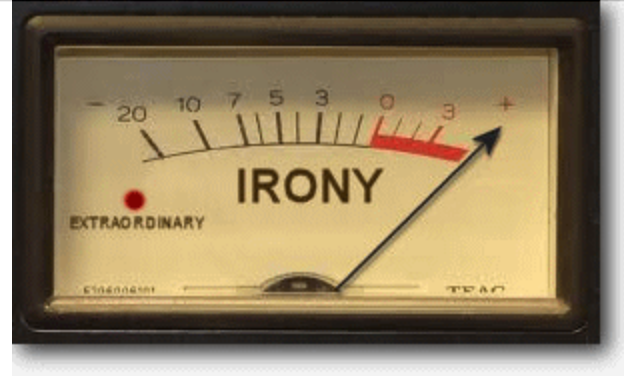I doubt any of them are reading Elsewhere Cafe. ![]()
But yes, I can see how pointing what they could do (if they weren’t so beholden to the interests of the wealthy instead of to ours) can also point to ways we could pressure them to do the right thing.
I doubt any of them are reading Elsewhere Cafe. ![]()
But yes, I can see how pointing what they could do (if they weren’t so beholden to the interests of the wealthy instead of to ours) can also point to ways we could pressure them to do the right thing.
I don’t know if they will or not, nor do I know if they should try. I have really mixed feelings, because I very strongly believe that the filibuster does more harm than good, at least in its current implementation (where all it does is serve as a de facto requirement that most legislation needs 60 votes). If they went back to the original rules, where it required holding the floor in a speech and where it held up any other Senate business until it was resolved, I might be ok with it. But the current version just makes it so that most bills need 60 votes, and the framers of the Constitution explicitly and intentionally declined to require a supermajority to pass legislation. And they did that for a reason, because for many issues, the Articles of Confederation required a supermajority, and it was too easy for a small number of legislators to just completely shut down the legislative process.
If they had ignored the filibuster during the Biden admin, they would have been able to pass the John Lewis Voting Rights Act. Considering that several million votes were simply not counted, especially in swing states like Pennsylvania, Michigan, and Wisconsin in the 2024 election, that alone could have swung the outcome.

MAGA media are eating their own after the Trump administration denied their Epstein conspiracy theories.

If there were no clients; why is Ghislaine Maxwell in prison?
Children, working poor and the elderly. That’s the plan for working in the fields. Mostly children, though.
I very strongly believe that the filibuster does more harm than good, at least in its current implementation (where all it does is serve as a de facto requirement that most legislation needs 60 votes).
Yeah, I know some people who hesitate to touch it because there were a few examples out there of times that it was used for good, but there are many more times that it was used for evil, even when a real “talking” Filibuster was required. One of the most famous examples of that was when Strom Thurmond very nearly succeeded in blocking the Civil Rights Act. And more recently there was Ted Cruz trying to defund the ACA and stop a continuing appropriations act, nearly causing the government to go into default on its debts.
I’ve gradually come around to the idea that elected officials (regardless of party) need to have the ability to actually govern and enact their policies when they’re in power, with the main safeguard being the judiciary being able to stop anything that’s unconstitutional. Then if the policies turn out to be unpopular and disastrous (which many clearly will be) then the voters can elect a new majority to fix it. Not great, but probably less bad than a system where nothing important can ever get done.
Pardon incoming? Or is she in on state charges?
If there were no clients; why is Ghislaine Maxwell in prison?
I thought this comment in the thread was particularly spot-on:
If there truly hadn’t been a client list, the DOJ/WH reaction would have been VERY different.
Bondi would be grandstanding about “missing files,” and “being committed to get to the bottom of it…”
The coverup is so obvious that even MAGA diehards can’t not see it. Which, I love to see in a way, but it all sucks in pretty much any other way. ![]()
Paul Krugman really got to the main stumbling block in negotiating trade agreements with Trump, noting some nonsensical accusations against South Korea:
Notice that Trump offered no specifics — because there aren’t any. How were the South Koreans supposed to end unfair trade practices that exist only in Trump’s imagination?
Here’s an analogy that occurred to me: Imagine that you have a belligerent neighbor who threatens to take revenge unless you stop dumping trash on his lawn. You reply, truthfully, that you aren’t dumping trash on his lawn. His response is to accuse you of being intransigent and slash your car’s tires.
The only possible out here would be a series of fake deals, in which countries pretend to have offered significant concessions and Trump claims to have won big victories. Some people still think that will happen — the new tariffs aren’t supposed to take effect until Aug. 1. But the tone of those letters and Trump’s clear obsession with tariffs make me doubt that he’ll call the tariffs off, in part because of my last observation: Attempts to mollify Trump always end up emboldening him to demand more.
Why make a deal with a man who will surely break it?

News flash: Trump is still Trump
Trump: Are you still talking about Epstein?!? This guy has been talked about for years. Are people still talking about this creep? I can’t believe you’re asking a question about Epstein…
Asked about Jeffrey Epstein, Trump replies: "I can't believe you're asking a question on Epstein at a time like this where we've had the greatest success and also tragedy with what happened in Texas." "It just seems like a desecration."

Conspiracy theorists have long speculated the government was hiding incriminating information about Epstein’s so-called ‘client list’



By allowing houses of worship to endorse candidates, despite federal tax law, the IRS is “fixing” a problem that doesn’t exist, while inviting new ones.
Federalist Paper #22, written by Alexander Hamilton, changed my mind on the filibuster. Of course, he wasn’t talking about the filibuster, but about equal suffrage between states (like we have in the Senate today) and about requiring a 2/3rd majority to enact certain legislation, but the same principle applies:
But this is not all: what at first sight may seem a remedy, is, in reality, a poison. To give a minority a negative upon the majority (which is always the case where more than a majority is requisite to a decision), is, in its tendency, to subject the sense of the greater number to that of the lesser. Congress, from the nonattendance of a few States, have been frequently in the situation of a Polish diet, where a single VOTE has been sufficient to put a stop to all their movements. A sixtieth part of the Union, which is about the proportion of Delaware and Rhode Island, has several times been able to oppose an entire bar to its operations. This is one of those refinements which, in practice, has an effect the reverse of what is expected from it in theory. The necessity of unanimity in public bodies, or of something approaching towards it, has been founded upon a supposition that it would contribute to security. But its real operation is to embarrass the administration, to destroy the energy of the government, and to substitute the pleasure, caprice, or artifices of an insignificant, turbulent, or corrupt junto, to the regular deliberations and decisions of a respectable majority. In those emergencies of a nation, in which the goodness or badness, the weakness or strength of its government, is of the greatest importance, there is commonly a necessity for action. The public business must, in some way or other, go forward. If a pertinacious minority can control the opinion of a majority, respecting the best mode of conducting it, the majority, in order that something may be done, must conform to the views of the minority; and thus the sense of the smaller number will overrule that of the greater, and give a tone to the national proceedings. Hence, tedious delays; continual negotiation and intrigue; contemptible compromises of the public good. And yet, in such a system, it is even happy when such compromises can take place: for upon some occasions things will not admit of accommodation; and then the measures of government must be injuriously suspended, or fatally defeated. It is often, by the impracticability of obtaining the concurrence of the necessary number of votes, kept in a state of inaction. Its situation must always savor of weakness, sometimes border upon anarchy.
I have changed the minds of more than one person on the filibuster by sharing this with them.
ETA: A link to the entire paper. It’s not the easiest read, because it was written in 1787, but it’s good.

He’s posted some memes on the matter.

Trumpworld is trying to put out the flames JD Vance was happy to fan before it was his job to be the authority on the matter, writes John Bowden

It was members of the president's own team who helped light the match and fan the flames, starting a political fire that they’ve clearly lost control over.